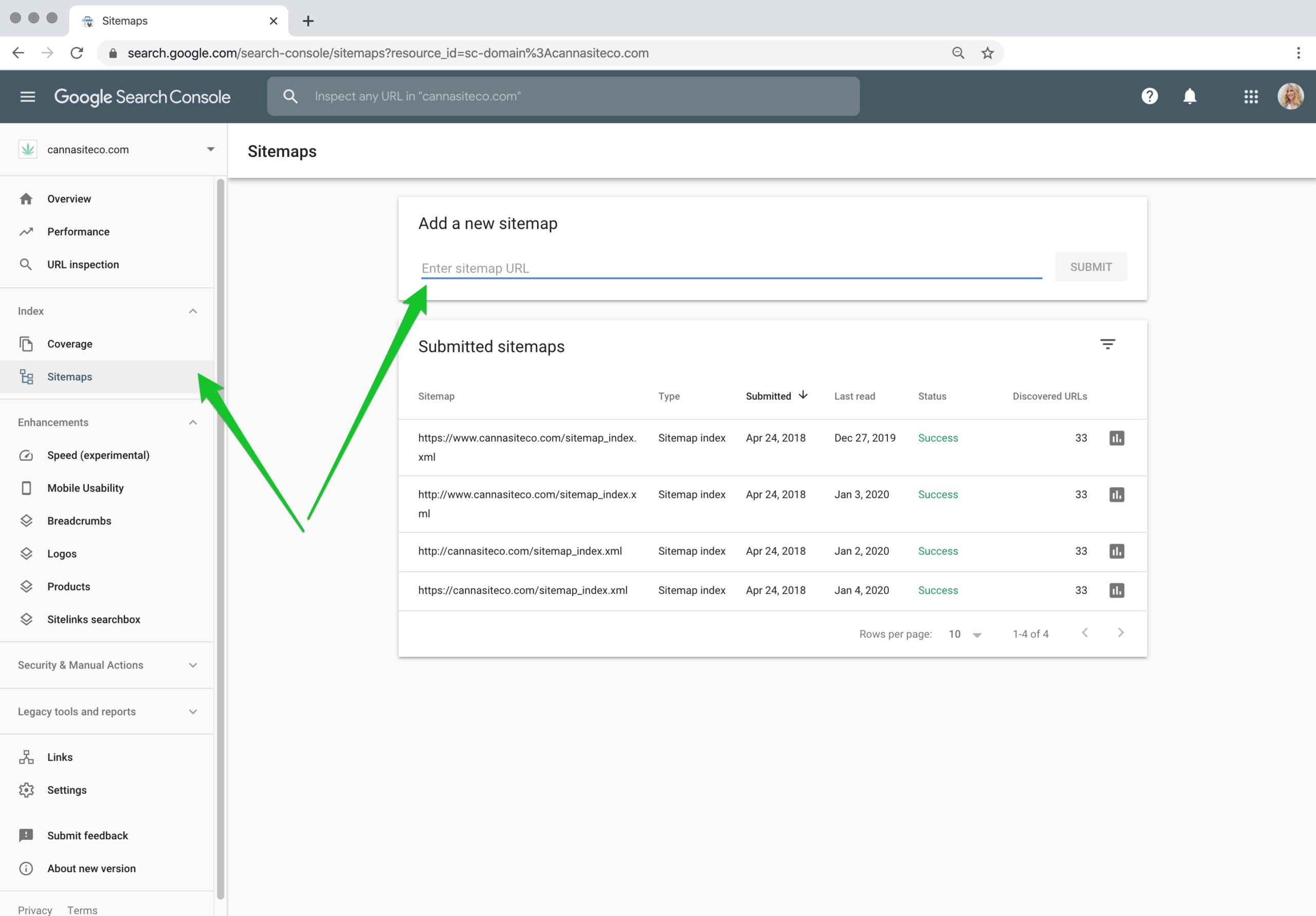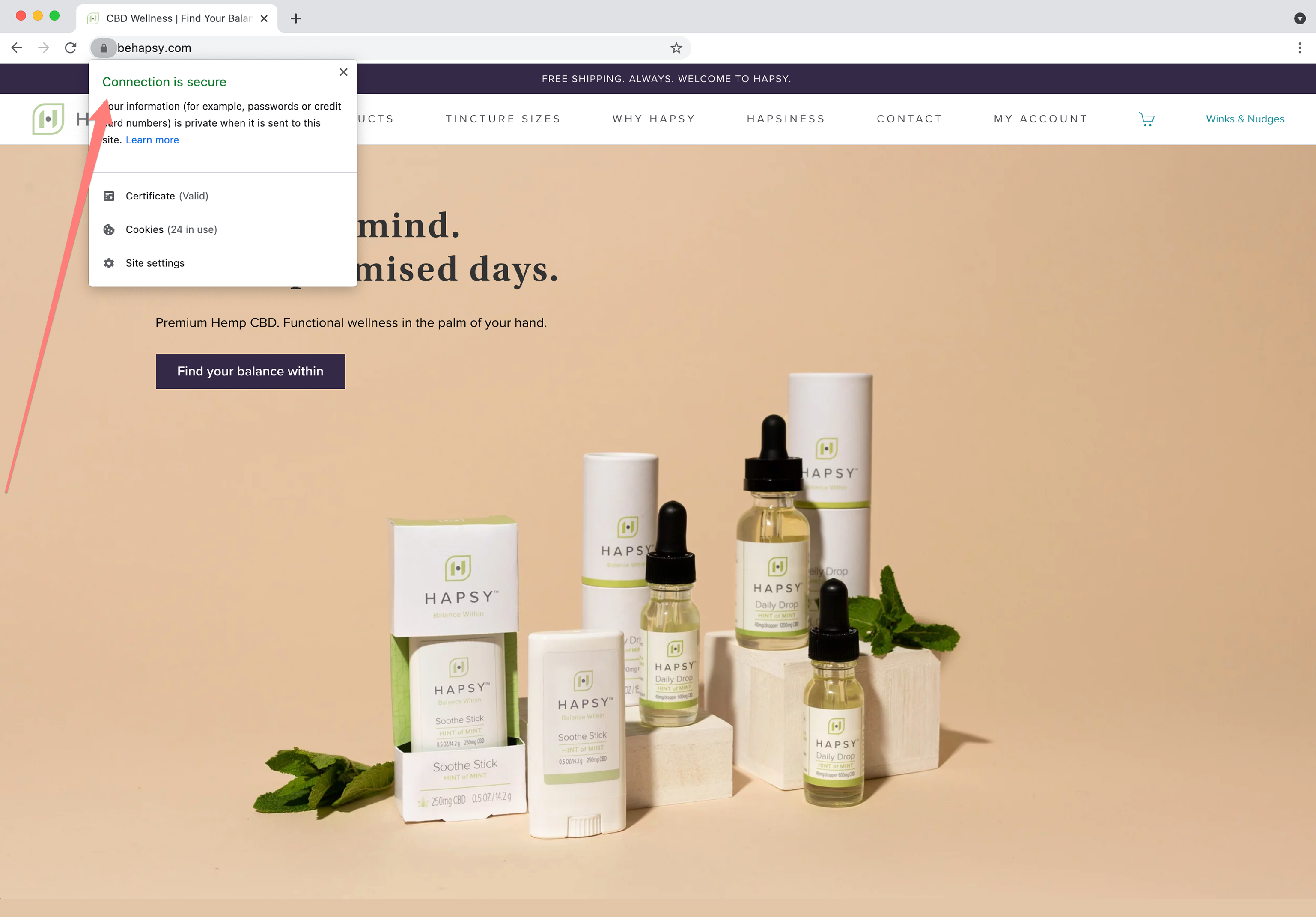
You Launched a New Website — Now What? Get Found by Search Engines!
Whether you DIY’d your new website or hired someone to help, there are a bunch of things you should do once your website is live to set yourself up for success. Just like opening a dispensary or bringing a product to market, the job is not done when the doors are open or when the crop is harvested. Sure, you can publish a website and hope for the best, but it may not be equipped with the right tools to be found by search engines. So how do you guarantee your website will be found by search engines? We’ve got a website post-launch checklist of actions your cannabis business can take to do just that.
Let’s talk about some crucial launch tasks that will help get your website in front of your ideal clients. We call them, CannaSite’s Top 5 Website Post-Launch Checklist Items. (We know.) And when you’re done, download The Ultimate Website Launch Checklist to maximize your website’s potential!
Top 5 Website Post-Launch Checklist Items
1. Make sure your website is mobile-friendly
2. Check for accessibility
3. Tell the search engines your site exists
4. Optimize your content
5. Test your website security
1. Make sure your website is mobile-friendly!
One of the most important yet overlooked website design details is responsiveness. Having a responsive design, also known as being mobile-friendly, means your website will respond according to the size of the device viewing it for an optimal experience. Responsiveness should be considered before and during the website build, but it’s never too late to take action. Google provides a free Mobile-Friendly Test. Simply visit the link and enter your URL. If your site is mobile-friendly, excellent! If not, Google will provide information to help you fix the problem(s) and a process to notify them about your fixes. Contact your web developer for assistance or DIY. Use the test as often as needed until a resolution is found.
And remember, just because Google doesn’t find any mobile-friendly issues doesn’t mean there aren’t browser compatibility issues. Test drive your site on mobile and a wide variety of devices (tablet, laptop, etc). Send your family and friends the site and ask them to send screenshots of issues they experience or things that look out of place, cut off, etc. Then make adjustments and test again. It’s sort of like finding the perfect strain — it may take some test runs and a few adjustments to find the perfect high.
2. Check for web accessibility.
For many able-bodied people, accessibility may not register as a top priority, but for millions of Americans and people across the world, web accessibility is incredibly important. It’s the difference between being able to access information about your business and not. Web accessibility, aka eAccessibility, is an inclusive practice of removing barriers that would prevent interaction with or access to your website for someone with physical or situational disabilities. To check the accessibility of your site, you can use this free Google Lighthouse Chrome extension. You can also use the WAVE Web Accessibility Evaluation Tool and the Web Accessibility test by Level Access without installing a browser extension. Some easy ways to improve eAccessibility include embracing white space and high contrast and increasing your font size.
3. Tell the search engines your site exists!
One of the biggest mistakes we see businesses make after launching a new website is waiting for Google to find it. “If you build it, they will come” is a lovely idea, but your website is too important to wait to be discovered. Take full advantage of the free tools provided by Google and Bing, and set up Google Search Console and Bing Webmaster Tools. Both services require you to verify site ownership by adding a DNS record (although now you can import Google Search Console properties into Bing, making the setup even easier). Once verified, submit your sitemaps to each platform to be crawled and indexed asap. You can easily tell them both your sites exists in 10 minutes or less.
These tools are also a great place to monitor the health and readability of your website, measure your site’s traffic and more. If Google discovers a crawl error, you’ll get an email alert. Doesn’t get much easier than that. Take the time to address any errors — you know, Google it! Or ask your web developer for help.

4. Optimize your content.
If you want website traffic, you need relevant content. Relevant and optimized website content is crucial for search engines to deliver your site in your ideal clients’ search results. Not only should your content clearly communicate your products and services, but it is also a vehicle to integrate search terms (aka keywords) that your audience is searching.
Does word count matter? We think so, and we’re not the only ones. Yoast (in its blog and its SEO plugins for WordPress and Shopify) recommends a minimum of 300 words per page or blog post. But if you can add another 200 relevant words, then do it. We prefer a bare minimum of 500 words per page. For important or cornerstone content — like services, sales pages or funnels, targeted landing pages, etc. — you need 800-plus words. Then add metadata to every page, blog, product, link and image. It’s busywork, but it’s totally worth it. And many platforms/plugins make it easy.
Do some free research on Google to create a list of questions your customers are asking. If you want to be found by search engines, ask and answer the questions your audience is searching for within your content. Make your content scannable. Break it up with subheads, and use numbered and bulleted lists when possible.
For many searches, especially questions, Google highlights the top result in a feature box. The Google answer box, also known as a featured snippet, is a special box showing the descriptive snippet from the result first, not after as is the standard format. Google determines whether a page would make a good featured snippet for a user’s search request, and if so, elevates it. If your customers are searching, “what is the best strain for sleep” or “where can I buy wholesale cannabis”, be blunt and use those words. Take it a step further by summarizing your content in bullet points at the top of the blog post.
As your content gets better at answering the questions your customers are asking, it increases the authority of your website. Maybe Google will think your content is dope and make it a featured snippet. At CannaSiteCo., we offer a content-based SEO strategy that targets keywords and phrases in compelling content that keeps visitors engaged. Learn more about our three-joint cannabis SEO strategy.
5. Test your website security.
In 2014 Google announced it would start ranking secure sites over non-secure sites when possible. A security certificate, or SSL, provides a secured and encrypted connection to your website. If you have similar content and domain rating to your competitor but your site is not secure, Google will show your competitor over you. Typically SSLs are purchased through your hosting provider like GoDaddy, BlueHost, SiteGround, LiquidWeb and our favorite — WP Engine! (Thanks for asking! 😉 #affiliatelink) If you’re unsure whether your website is secure, use this free SSL Checker. Superstar hosts provide free SSL certificates and make the installation easy.

Solid start, amirite?! If you finished our top five website post-launch checklist items, then you have ensured your website will be found by search engines, and you have drastically improved your website’s ability to rank in the search results and attract quality traffic. When you plant firm roots, the green will come! Want The Ultimate Website Launch Checklist? Get your free download sent straight to your inbox by filling out the form below.
You launched a new website?! Dope!
Have you optimized it so it can be found by search engines? Download our free Ultimate Website Launch Checklist to ensure you’re ranking with the best!